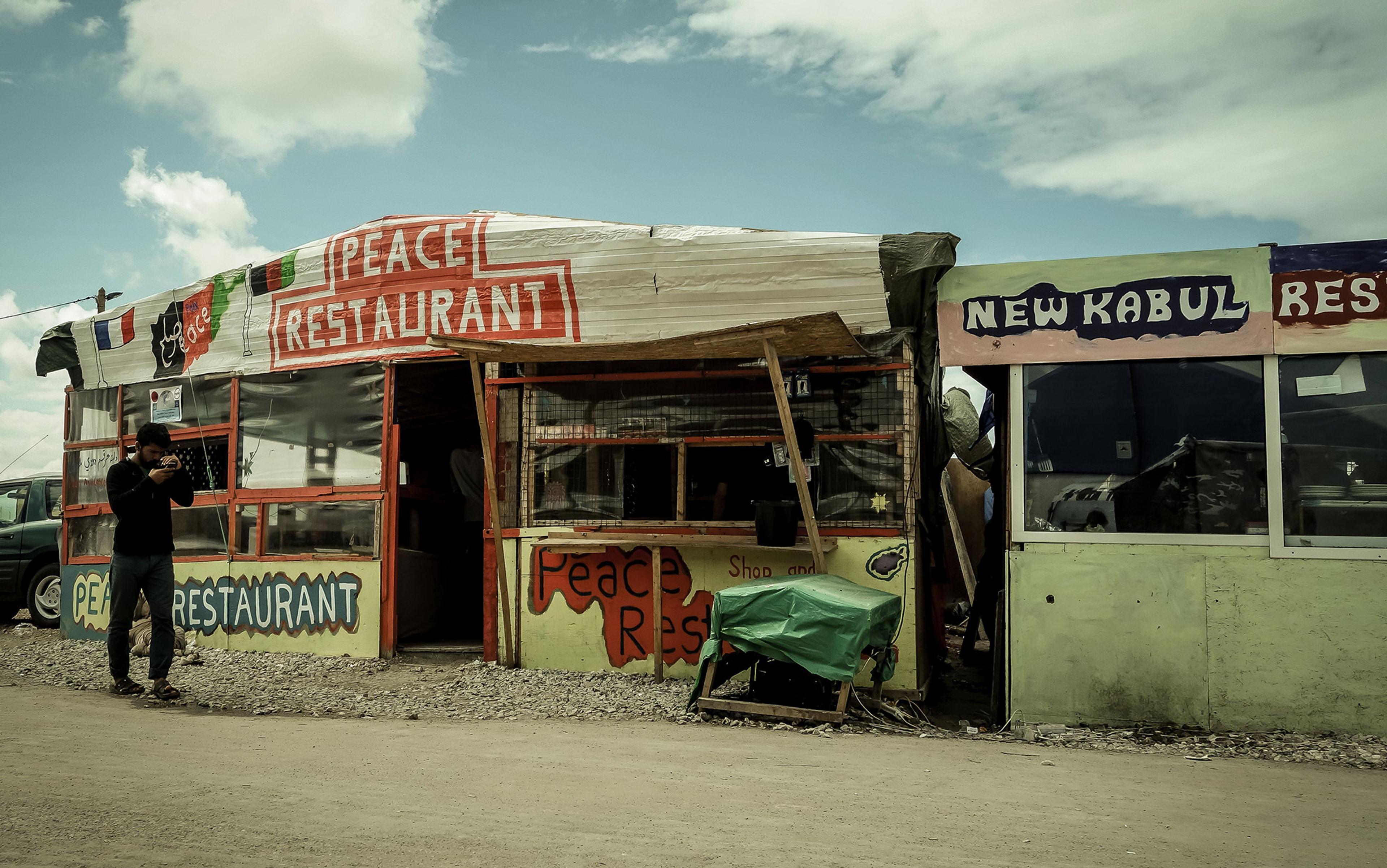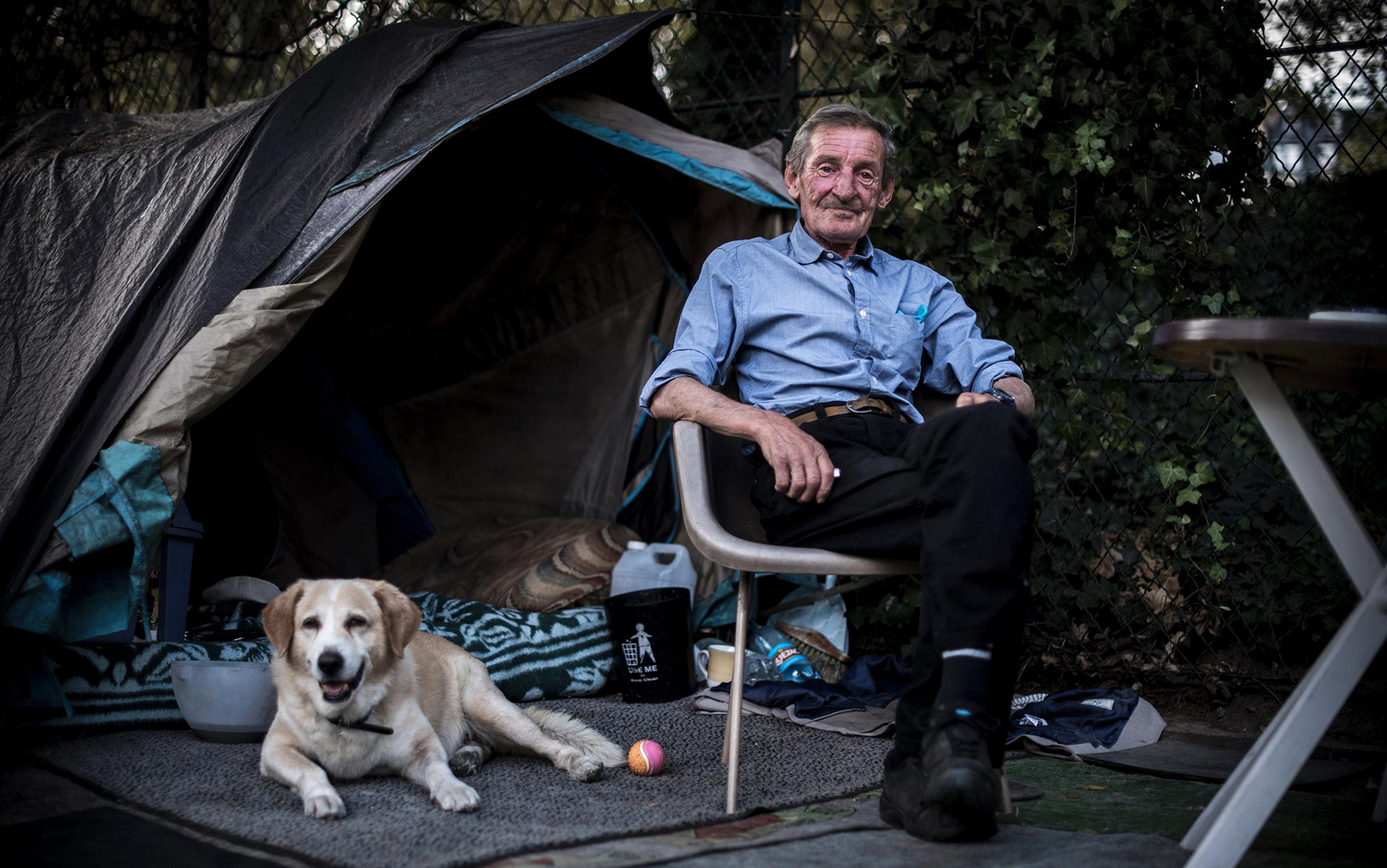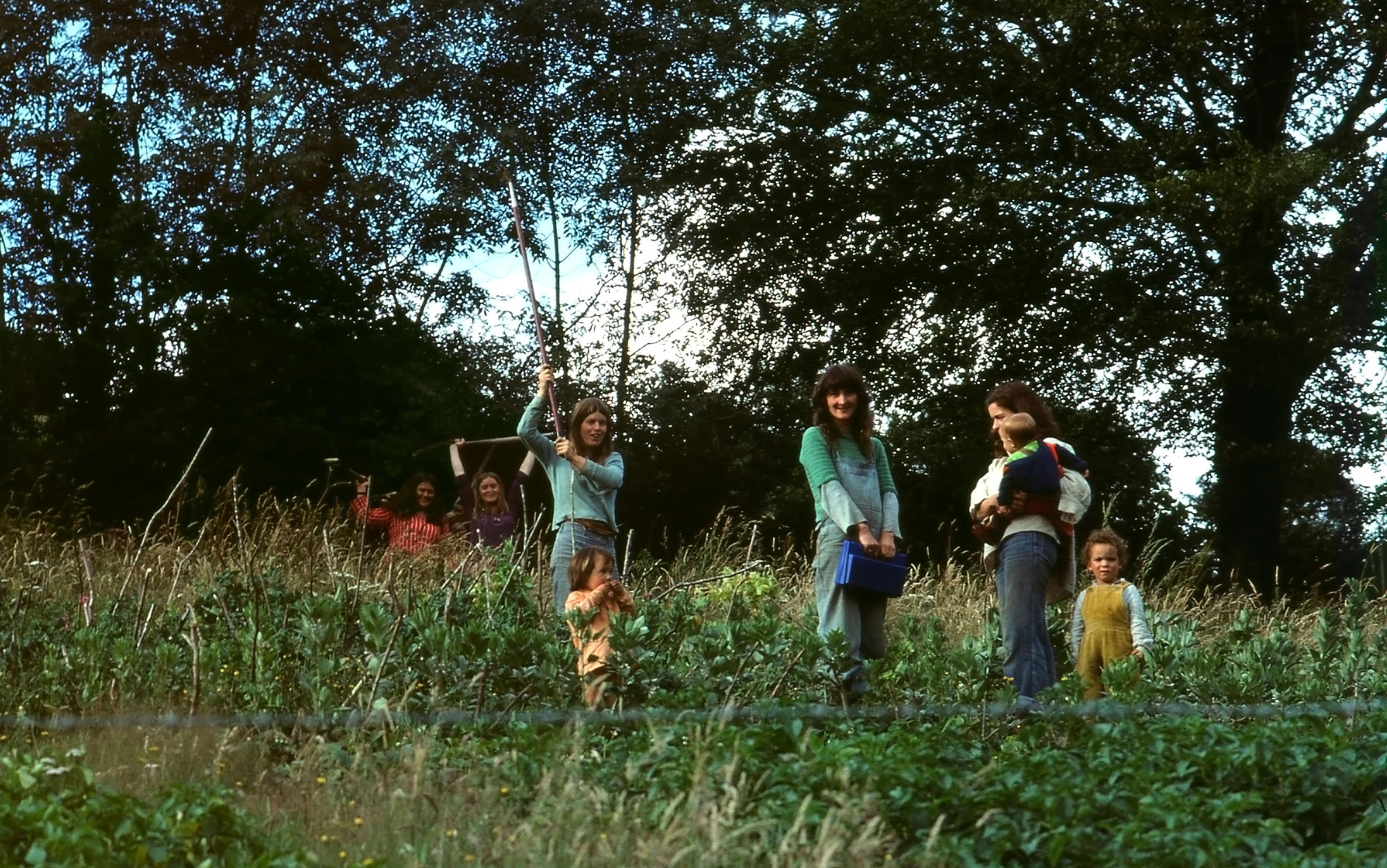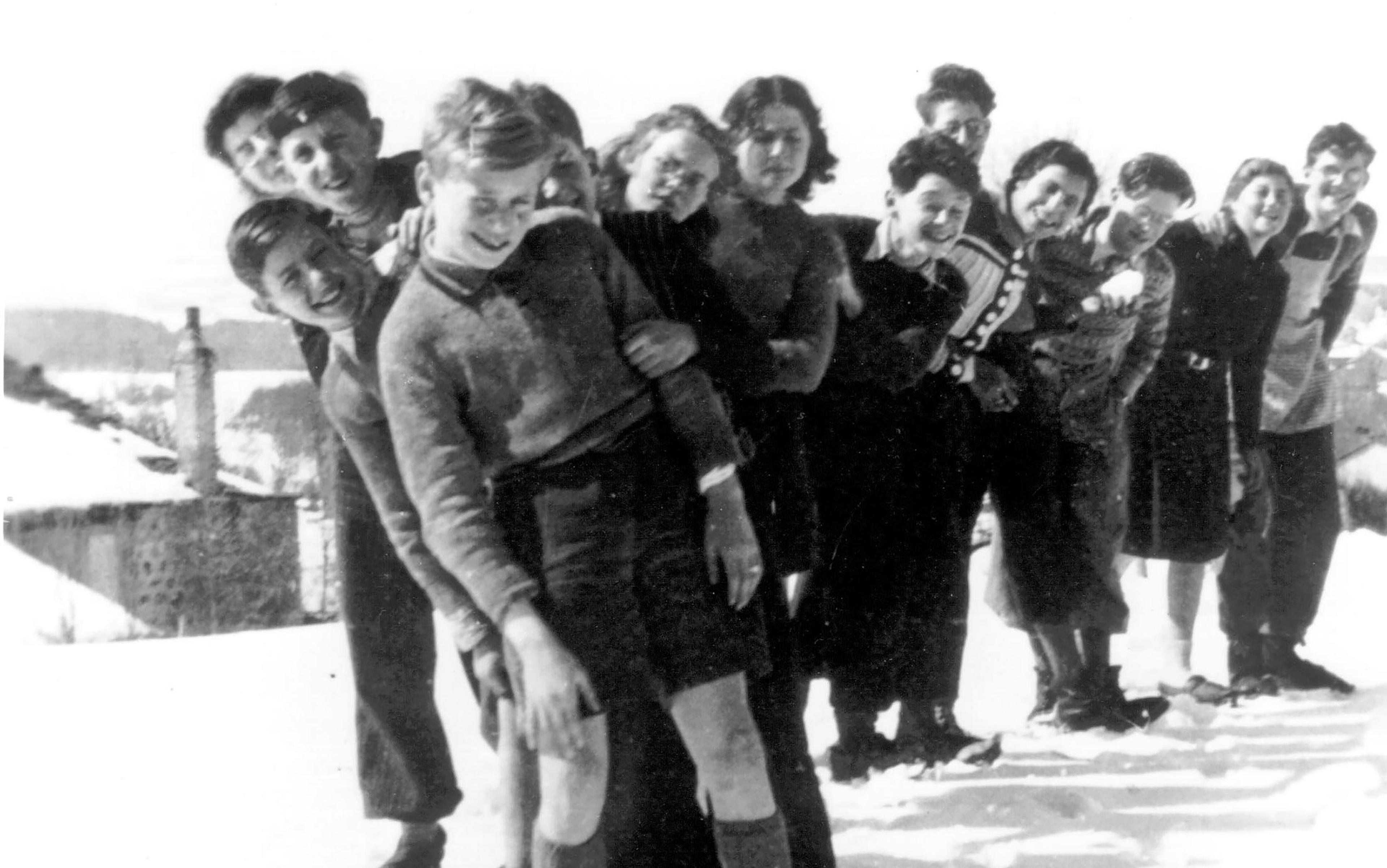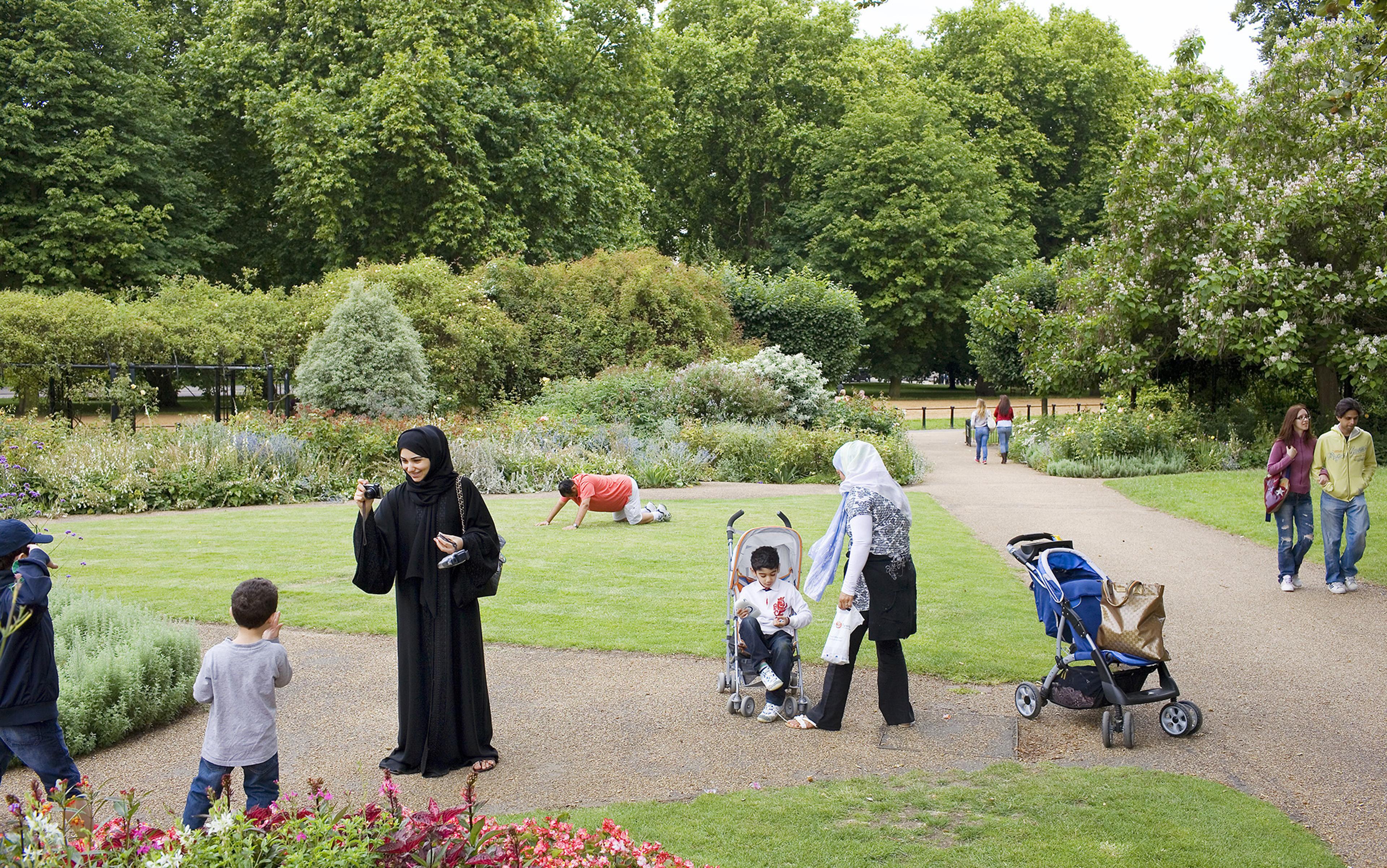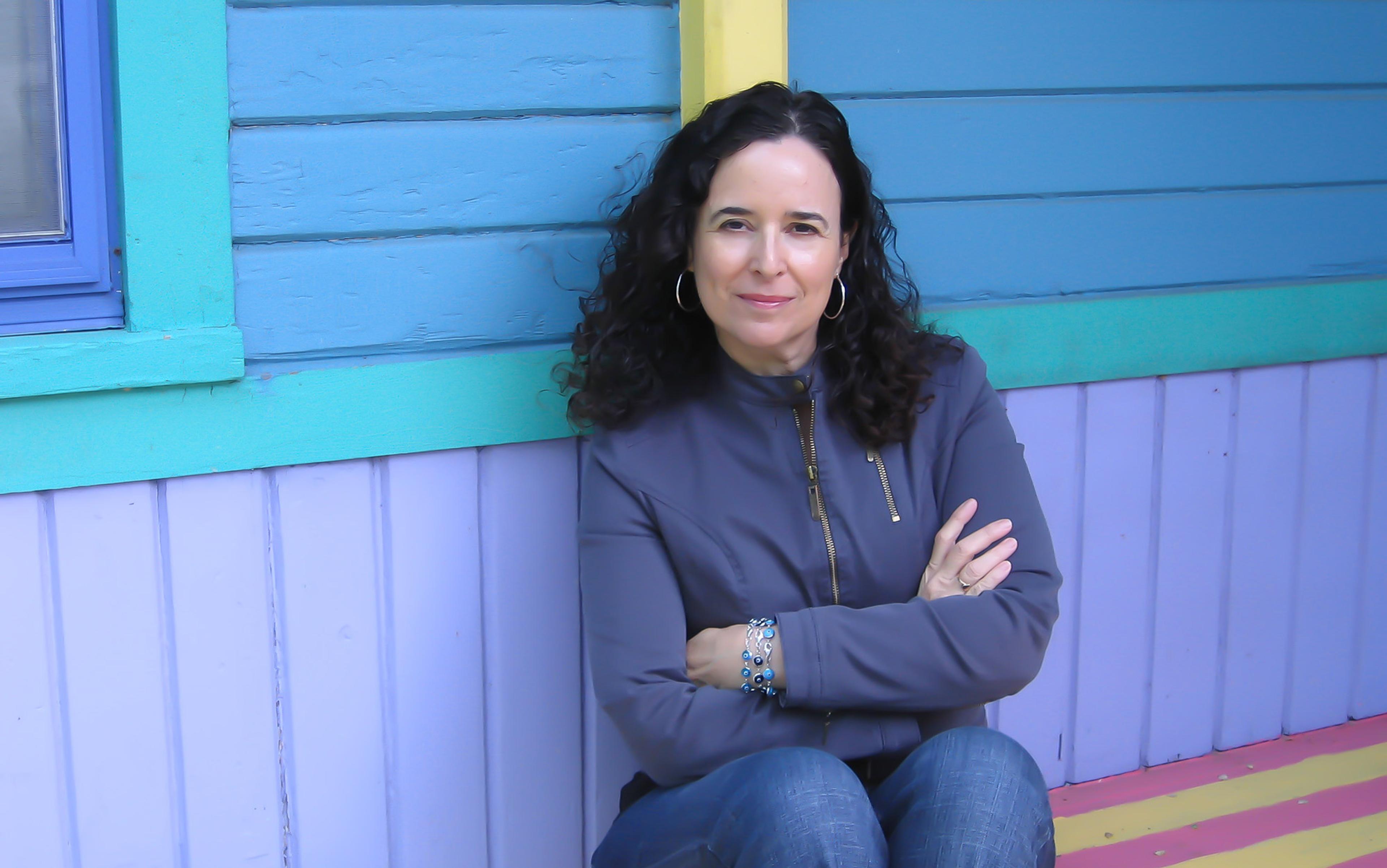I am sitting in a big white shelter – what was known as the Sudanese tent, in what was the Jungle refugee camp in the French port city of Calais. I am one of perhaps 200 people gathered together to talk. It is getting late, and the bright lighting in the tent jars with the softness of dusk. We have been here for two hours. People are weary, but committed, and buoyed by the hot, sweet tea being passed around. Most of us sit on a hilly landscape of mattresses and blankets covering the floor, our attention focused on a few figures that stand and direct the debate.
Most of the people gathered together are Sudanese, and men, but Afghans, Syrians and Egyptians are here too. So are a few Europeans, like me, who also live in the Jungle. People have come to discuss a death. Yesterday, a young man died, killed by a car on the highway while trying to get into the back of a truck bound for the United Kingdom. Nothing but his name – Yousuf – and his origin – Darfur – was known about him. That he was such a stranger has shocked people as much as the facts of his death. He had somehow fallen through the net of this community and revealed its holes. The sense that this is an important moment is palpable.
The day after the meeting, around 500 people began a march from the Jungle into Calais city to protest against the system that lead to the death of Yousuf. Met by a line of riot police at the Jungle entrance, the demonstrators began a silent vigil, now against the attempted suppression of protest. People sat on the floor with slogans such as ‘Where Are Our Human Rights?’ and ‘Justice for Yousuf’ taped over their mouths.
That summer and autumn had been far from silent, with more than 20 documented demonstrations, occupations or rallies taking place between June and December 2015. Some of these events focused on specific issues or experiences – a series of occupations of the area outside Calais town hall by people from Syria, or a march from the Jungle by women living there. Others were instigated by solidarity groups that brought thousands of supporters on to the city’s streets. In most cases, the messages were common ones: for human rights, for dignity, and for the right to free movement.
In many ways, these demos were just ‘the smoke out of the volcano’ of an active and diverse political community bubbling under the surface. But this was a political community with a split personality. On the one hand, these demos (and the meetings that led to them) expressed a very visible struggle for representation and recognition in front of a society that excluded them. But they stood in contrast and indeed contradiction to that other struggle in Calais – for the freedom of movement – that necessitated finding ways round the border regime, outside of the very society that the demos and protests were appealing to. That struggle rarely appeared like it represented anyone, or that it articulated any legible political message at all. It was a struggle for autonomy from the border regime, rather than inclusion within a society that gave birth to that regime. More about that later.
By the time this meeting took place, I had been living in the Jungle for three months. This was not the first time I had been there. My first visit to Calais had been seven years earlier. I had been coming back ever since, sometimes staying for a few days, and recently staying for longer periods, this time six months. I had come as part of the group Calais Migrant Solidarity. As the name suggests, the group is specifically focused on Calais, but is part of the wider No Border movement. In many ways, this movement is less any kind of structured ‘thing’ and more just the expression of two ideas: for the freedom of movement, and against borders. These are essentially two sides of the same coin, one constructive, the other destructive.
Whether you think of it as a group, a movement or an idea, ‘no borders’ has had bad press. Generally, it has been labelled either as an obscure brand of radical Left-wing politics, or as a hardcore militant group (as one friend described, ‘the ones who would steal your house while you were on vacation’), or as an idea so utopian as to be virtually meaningless. Yet if you think of no borders as first and foremost a struggle for the freedom of movement, then there are many people who are actively reclaiming that freedom, despite controls that are designed to stop them. This struggle is a practical one and it is happening right now. This is what no borders is all about: all the ways that people reclaim the freedom of movement, and all those little moments or spaces of autonomy that are created in the process. That meeting in the Sudanese tent was just one small example of this; the Jungle in which it took place, another. They are examples of making life autonomous from mainstream society. Not of getting by within the state, but getting by outside of it.
In many ways, the Jungle was the ultimate in ‘outsider’ places. Far from the first of its kind – in fact jungles, as symptoms of people on the move getting stuck, have existed in Calais in many different shapes and sizes for more than 20 years – this one nonetheless became particularly infamous, growing to be home to an estimated 7,000 people. Its population included Afghans, Chadians, Egyptians, Eritreans, Ethiopians, Iranians, Iraqis, Kurds, Libyans, Sudanese and others living side by side, begrudgingly, in conflict, in harmony. It was, essentially, a ghetto, chosen by the French authorities because of its distance from the city proper. It was filthy, isolated, continually surveilled, a slum. Yet it was also a crucial resource that the people living there used to survive in Calais and to move on. For these reasons, it became a major problem for the authorities. It was not just a passive place that the authorities used to gain a hold over people’s free movement. It was also an active space of continual struggle, where people resisted, and created another world in the process. That other world was a lawless space; outside of French law, but also outside of ‘normal’ society, or indeed any norms. Both inside and outside the system and the society that had created it, the Jungle became, unwittingly for the authorities, an autonomous space.
The Jungle acted as a gigantic hub in a vast network of free movement
Autonomy was present in many ways. Various resources that enabled people to survive and continue to move on – from practical things such as accommodation and food supplies, to information and types of infrastructure – were concentrated there. People collectivised the tasks of daily life, living in groups, sharing provisions and the work of collecting firewood or water, and cooking together. From the Jungle, people found ways to cross to the UK that could only happen when people worked together, whether that was making traffic jams on the highway leading to the port, or working in teams to help others get into the backs of lorries. People shared information that enabled them to keep moving; anything from new travel routes and ways around the different control mechanisms, to how to get to Sweden without papers, or where to stay in Paris for free. The Jungle acted as a gigantic hub in a vast network of free movement. People co-operated, not because they were particularly angelic beings, but because co-operation was the most efficient way of surviving. And indeed, many people had highly honed skills of survival through co-operation by the time they arrived in Calais, some having been on the road for a long time, often years.
The Jungle was originally just a collection of tents and shelters of around 1,000 people, built on the dunes and scrubland around a day centre 7 kilometres outside of the city of Calais. But in the space of around two months it grew seven-fold. Not wanting to condone or encourage the presence of people without papers in Calais, the French authorities refused to designate the Jungle as a refugee camp. Lacking this official status, most of the large aid agencies stayed away from Calais. In many cases, enthusiastic but inexperienced visitors stepped in where the aid agencies would have been. What emerged was largely experimental and DIY. It was alarmingly filthy, marked out by rudimentary streets. There were roads, lanes and quiet dead-ends; loud public squares that were never quiet, and seedy, silent neighbourhoods that nobody felt safe to be in. There were the old and well-heeled neighbourhoods with their organised and regimented rows of homesteads, the ground closely swept and clean, and the new parts of town that ate up the remaining open spaces; tent neighbourhoods slowly replaced by more substantial structures. These were the arteries and capillaries of a shanty town that grew organically.
The Jungle quickly diversified beyond just accommodation to meet the various needs, wants, creativities and desires of its residents and visitors. At its height, it contained maybe 30 shops, 20 restaurants and cafés, and several bars and night clubs. A distinct downtown district emerged, which diversified to include several bakeries, snack bars, hairdressers and hamams. After some time, a nightly market took place there, where people sold things they had received as aid. And, as different aid groups replaced the tents with more substantial wooden cabins, the old tents also became items for trade. Outside the norms and laws of trade, with no rents or taxes to pay, businesses boomed wherever a market arose. This was lawlessness in a real sense; the perfect place for unregulated trade. For most, trade presented an opportunity to survive while they were stuck in Calais. For a few, trade brought them to Calais. These businesses were the visible part to another, long existing and less visible trade in people-smuggling that had been in Calais for many years. The authorities tried to close all these businesses, but succeeded only when they closed the entire Jungle in October 2016. The shops were the last section to go, the smuggling networks outlasting it all, and remaining there still.
As the Jungle grew and started to grab headlines, others came and contributed to it, adding a wellbeing space, a women and children’s space, a library and a theatre, among many other things. Beyond shelter and trade, people in the Jungle built three different schools, several mosques, churches of different denominations, meeting spaces, and a bicycle repair venue. The existence of these spaces greatly elevated the quality of people’s lives here. They raised the Jungle from being a place of mere survival, to one where people grew, shared things, and created others. It was, in other words, its own culture, and one that brought together many different influences: a hybrid of customs, fashions, cuisines and languages; of different kinds of music and dance; different customs for sharing a meal, for celebrating, or drinking coffee or alcohol.
Language was a good example. A lexicon emerged that became commonly shared. For instance, kubba: meaning stuff, or bric-a-brac, a word that apparently traced a heritage from the Sudanese Arabic word for rubbish, came to be used to refer to all the aid, especially clothing, that was brought to the Jungle; zarouk: also from Sudanese Arabic, meaning rocket, denoted a newcomer to the Jungle; its opposite, makana, meaning machine, denoted someone who had been trying to cross for a long time. Even the word Jungle is said to have come from the Pashtu word dzangal, meaning woodland, the first self-created camp in Calais having grown up in such a place near the city’s port.
Many came to celebrate the Jungle for the ‘cultural melting pot’ that it was. But what made it subversive was that this was a culture of outsiders. It signalled the resilience of the people living there, and that was a provocation to the French and British authorities. It was a culture that embodied lawlessness. That it was populated by people who were continually undermining the border regime, or that at least six mosques existed in a district of perhaps 6 square kilometres on French territory, seems unthinkable in any other part of Europe. Jungle culture was also subversive in the way that it never amounted to any single overriding system. Instead, numerous different ways of being existed alongside each other – not in some kind of harmony, nor with any one way dominating. It was never the regulated, organised and secure space of a refugee camp, but a cacophony of ideas, cultures and ways of being; alive with possibility, creativity and chaos.
This place was not France. Neither was it Sudan, nor Afghanistan. It was some strange hybrid: everybody’s and nobody’s
It was comprised of so many tiny fragments: unusual smell-scapes – wood smoke mixed with the generic sweet-bitter smell of burning rubbish, or the back-of-the-throat stench of the nearby chemical factory mixed with the warm spices from a Jungle kitchen; strange sound-scapes – ducks chattering, the call to prayer, the guns of hunters firing off from the local nature reserve, the sound of people fighting, tear-gas canisters fired into the crowds. It was hours and hours in cramped homes drinking sweet tea; coastal gales, endless rain and catastrophic mud. It was smoky fires and infernos that burned all night, destroying entire neighbourhoods. It was freshly baked naan bread, and the dull taste of stale bread. It was gorging on lamb during Eid. It was family life, prostitution and sisterhood. It was playing card games all day, for days on end. It was sheesha, cheap beer and Jungle cigarettes, hand-rolled and sold wrapped in silver foil. It was the sting and the stink of tear gas. It was friendships built without a common spoken language; fragments of understanding and confusing meanings. It was games of cricket on bulldozed land that had previously been people’s homes. It was all the favours that can never be repaid, the strong bonds of friendship, and so many other things. There was no uniform experience. It was a home for some and a hell for others. It was often boring, always intense, where terrible things and wonderful things happened. This place was not France. Neither was it Sudan, nor Afghanistan. It was some strange hybrid of all of this; everybody’s and nobody’s.
A year after the meeting in the Sudanese tent, the Jungle was destroyed. Since then, people have started returning to Calais to try to cross, bundles of shelters re-appearing in forgotten corners; little outsides to the system growing up again. The split-personality struggle for migrant rights and for the freedom of movement continues to create and unravel itself. Things appear bleak, the possibilities for autonomy limited. But people still move. Gaps in the system – those outsider, lawless, free spaces – still exist, and their existence is important for the freedom of all of us.
All of this and much more is what no borders is for me, imperfect and incomplete as it is. As one friend put it: ‘No borders is happening all the time, and the time perspective for struggle is now … the time to live is now, with all its bitterness and defeats but also with its victories and joy.’
